Maine has a surplus of human waste. It's being shipped to New Brunswick
Wed, March 8, 2023
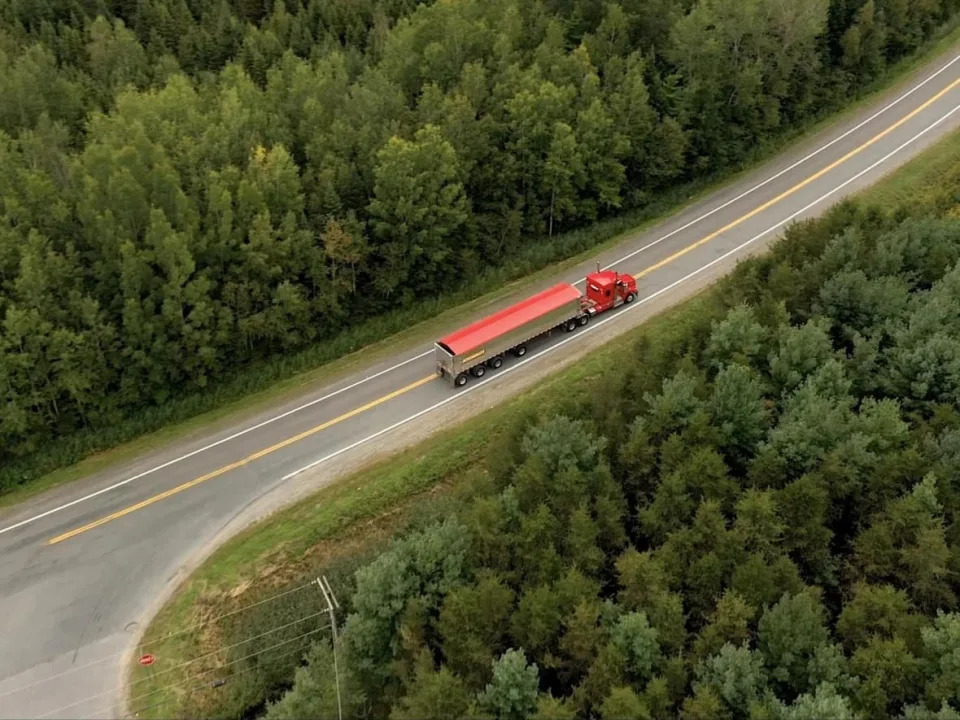
Casella Waste Systems was shipping sludge to Québec for agricultural use but after Radio-Canada reported on those shipments last December that province imposed a moratorium. (Francois Genest/Radio Canada - image credit)
A Maine company with a surplus of human waste is increasing its shipments to New Brunswick.
Casella Waste Systems confirmed that it's shipping more sludge from its large landfill north of Bangor across the border and into this province.
"We have recently entered into a new contract with a disposal outlet in New Brunswick," Jeff Weld, the director of communications for Casella, told Radio-Canada in an email.
The New Brunswick government appeared unaware of the increased shipments when contacted for comment.
Environment Department spokesperson Anne Mooers said Fredericton-based Envirem Organics is the only company in the province licensed to import biosolids and has been doing so "for a number of years."
She said the company imported 13,400 tonnes from Maine and Nova Scotia in 2022. "This isn't new," Mooers said in an initial response.

Francois Genest/Radio-Canada
But Casella is moving far more than that amount, according to a company letter.
It's shipping 3,600 tonnes of Maine sludge — about 130 truckloads, according to one Maine media report — to New Brunswick each month.
In a second response, Mooers said Envirem has a "cap" of 100,000 tonnes annually so it "can handle" the additional shipments from Maine.
"The government of New Brunswick takes its role to protect the environment extremely seriously," she said.
"We have had strict regulatory requirements for importing biosolids for many years. New Brunswick legislation requires all importation of waste products to be approved by the province."
'Short term' increase, company says
Envirem CEO Bob Kiely said in a text message that the company has had contracts with Casella for years and "the increase in volume … is expected to be short term."
He said the company has developed more stringent standards for what it accepts "than any other regulatory jurisdiction."
Casella is facing a serious capacity crunch as a result of two new state laws.
A law which took effect Feb. 8 bans the use of the sludge for agricultural production in Maine.
It's a response to concerns the sludge contains so-called "forever chemicals" known as PFAS that are considered a risk to human health.
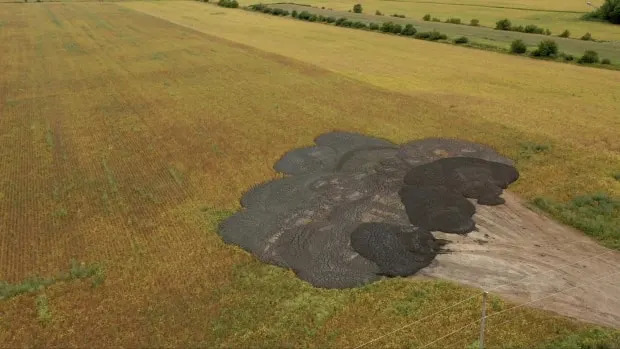
Francois Genest/Radio-Canada
Another problem is a recent state ban on importing large bulky waste that Casella could mix with the sludge to bury it.
The two bans leave Casella with too much sludge to handle at its landfill site in Old Town, north of Bangor. The site receives sludge from about three dozen local sewer plants.
Casella was shipping sludge to Québec for agricultural use but after Radio-Canada reported on those shipments last December that province imposed a moratorium, based on the same concerns about PFAS.
The U.S. Environmental Protection Agency says exposure to certain levels of PFAS, or perfluoroalkyl and polyfluoroalkyl substances, have been linked by peer-reviewed studies to some cancers, decreased fertility, low birth weights and other effects.
PFAS are chemicals used to make coatings that resist heat, oil and water and can be found in adhesives, packaging and non-stick cooking surfaces among other places. They do not break down and can accumulate.
Weld said in his email that the Québec moratorium "does not have anything to do with" the shipments to New Brunswick.
"All operations are in full compliance with regulations," he said.
Kiely said he expects Casella to find other sources of large bulky waste to mix with the sludge, which will allow it to be buried and reduce the surplus at the landfill, returning export levels to normal.
Concern from N.B. agricultural group
Joel Lamarche, president of the Agricultural Alliance of New Brunswick, said he was concerned about the shipments and would discuss them with the organization's board.
In the meantime, he is warning farmers in the province to not accept any biosolid-based fertilizers that might be from Maine.
"What I would tell them is to refuse it. It's better to refuse it and have no problems than accept it and risk having a major problem," he said.
"If you don't know what's in it, don't use it."
Kiely said Envirem makes compost and its product isn't used on agricultural land. He said he's not aware of any sludge applied to farm crops in the province by Envirem or anyone else.
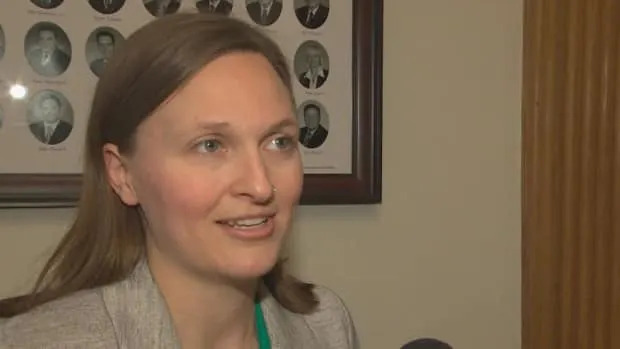
CBC News file photo
He also said the company is "very selective" about what it receives and recently added even more stringent standards to address "new and emergent concerns."
That includes allowing only "very low" levels of PFAS, he said.
Green Party MLA Megan Mitton says the province needs to act on the Maine shipments.
"They're sending them to New Brunswick because they don't want to deal with the consequences of those products," she said. "I don't want New Brunswick to have to deal with those consequences either."
Sabaa Khan, the David Suzuki Foundation's director-general for Québec and Atlantic Canada, says New Brunswick needs stricter rules on PFAS.
"Under New Brunswick's guidelines, PFAS levels in biosolids are not integrated into the quality criteria. Québec is now looking at that situation and New Brunswick has to take the same action."

Francois Genest/Radio-Canada
New Brunswick's environmental guidelines for the use of industrial byproducts in agricultural soil bans the use of "materials derived from municipal biosolids, which have high levels of pathogens," but does not mention PFAS.
Mooer's response from the environment department Tuesday did not address PFAS either.
In a Feb. 24 letter to a municipal sanitary authority in Maine, obtained by Radio-Canada and CBC News, Casella said the new state legislation had "greatly diminished" the volume of biosolids that its landfill could handle.
That would require 4,000 U.S. tons —the equivalent of 3,600 metric tonnes — to be sent "out of Maine," leading to higher fees to municipal sewage operations, the letter said.
Khan says in Canada, the Canadian Food Inspection Agency regulates the use of biosolids on agricultural land growing food for human consumption, but its criteria do not cover PFAS.
Provinces have the jurisdiction to regulate biosolids through environmental guidelines, she adds.
"It's incumbent on every province to ensure its biosolid regulations are up to date."
Chinese Canadians walk tightrope in political arena amid foreign interference debate
Wed, March 8, 2023

Mark Lee, a professional translator and former council candidate in Richmond, B.C., says he knows what it's like to walk the fine line faced by fellow Chinese Canadians entering the political arena amid scrutiny of alleged foreign interference.
He says he's not ignorant of the risks and considers potential political interference a serious issue that needs to be addressed.
"I've seen things that I think are maybe suspicious, or I feel like I don't agree with coming out of, for example, the (Chinese) consulate," said Lee, who ran unsuccessfully last year as part of the slate for the Richmond Citizens Association.
But he also worries about Chinese Canadians being tarred by association, and the potential for misunderstanding of "cultural dynamics" during a debate about political interference that has been going on for years within Chinese communities but has recently triggered broader scrutiny and calls for a public investigation.
“There were some people in Richmond who were basically treating it like, if you have any connection with certain groups, then you must be a Chinese government spy or infiltrated or something like that,” said Lee, who lives in the most ethnically Chinese city in Canada.
Lee's concerns are echoed by Chinese Canadian figures across the political spectrum who simultaneously worry, with varying emphasis, about interference by Chinese authorities, a lack of nuance, racism and the use of the debate to push wedges into ethnic Chinese communities.
The Globe and Mail newspaper reported last month that China had worked to help ensure a Liberal minority victory in the 2021 federal election, as well as defeat Conservative politicians considered unfriendly to Beijing, including Kenny Chiu, who lost his seat in Steveston-Richmond East.
Chiu says he's gravely concerned that possible foreign interference may have played a role in his election loss, but also worries about oversimplification, and a monolithic view that Canadians with Chinese links are more likely to be influenced.
Doing so, he said, would play into the hands of foreign governments looking to shape the outcomes of Canadian elections while also putting Canada's multicultural society at risk.
The key, Chiu said, is to fight racism regardless of the victims' ethnicity or cultural background, reducing the chance of it being used to turn Canadians against each another.
"They know that this is a wedge that they can drive into Canadian society," Chiu said of potential Chinese meddling and accusations of racism.
He added that there was a lack of nuance in the debate and was "alarmed" by some of the comments he heard from people generalizing about ethnic origins that, for example, if you were from Taiwan, you must be pro-democracy and for freedom and justice, which isn't necessarily true.
Conservative Leader Pierre Poilievre and NDP Leader Jagmeet Singh have called for a full public inquiry into foreign meddling in Canadian elections, something that Prime Minister Justin Trudeau has resisted.
Poilievre said on March 1 that Chinese Canadian community members are "wonderful" and victims of foreign interference, and any inquiry should include ways to protect people from Beijing.
"Chinese Canadians are patriotic. They are faithful to our country. They deserve our protection," said Poilievre, calling it "absolutely unacceptable" that they should be harassed or intimidated by foreign powers.
Kenneth Tung, a former chair of Vancouver-based immigrant services group SUCCESS, hosts a news talk show on Chinese language radio AM1470.
Tung said that attributing any scrutiny of Chinese Canadian politicians to racism would be a mistake.
Canadians with ethnic, cultural, linguistic or other links to China shouldn't run into problems if their actions reflect Canadian values as a priority, he said.
"I think it's important to make it clear: As a Canadian Hong Konger or Canadian Chinese, we don't need to defend an issue, especially issues that will confuse (observers) if we are defending the Beijing regime," Tung said.
He added "if it's an issue related to the Beijing regime, if it's not our Canadian value, we should condemn it."
In 2016, then Vancouver city councillor Kerry Jang faced criticism when he and dignitaries including then Chinese consul-general Liu Fei wore red neckerchiefs as the Chinese flag was raised at City Hall to mark Chinese National Day.
Critics said the knotted scarves were a Communist symbol, while event organizer Ma Zaixin said a provider had "misunderstood" what type of scarves were required, according to documents released under a freedom of information request.
Jang, a third-generation Chinese Canadian, said he “vividly remembered getting hate mails, death threats. I never was once influenced or told to do something," he said.
As a former politician, Jang said he had met diplomats from many countries, including China. That didn't automatically make him a spy from China, he said.
He said insinuation is no substitute for evidence. “If there is proof that you should charge somebody, you should put them in jail for interfering in our elections," Jang said. "Or if it was a diplomat from whatever country, send them home. Have them expelled."
Lee says the debate isn't deterring him from the political scene, and he plans to run again at the next municipal election.
He sees Chinese Canadians' participation in politics important in the context of the foreign interference debate, because their interactions with Chinese authorities have given them "a pretty realistic understanding of the way they operate."
Lee sees a role for Chinese Canadians that transcends them being seen as victims or perpetrators of foreign interference. Instead, he wants them to play a bigger role interpreting the hazards.
Chinese Canadians like him, he says, "maybe have a little bit more cultural knowledge or a little bit more understanding of the way (this) type of interference can look."
This report by The Canadian Press was first published March 8, 2023.
This story was produced with the financial assistance of the Meta and Canadian Press News Fellowship.
Chuck Chiang and Nono Shen, The Canadian Press
'If we lose this fight, we lose everything': Naskapi, Innu nations oppose Quebec mining project
Wed, March 8, 2023
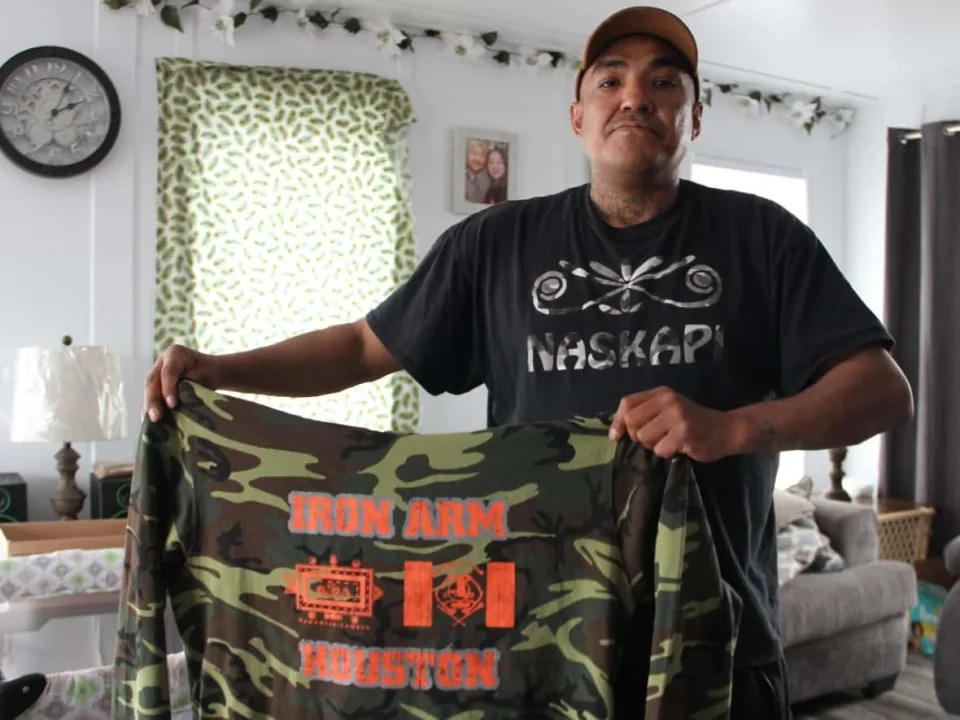
Napess Vollant, who lives in the Naskapi Nation of Kawawachikamach, says he is ready to do whatever it takes to stop Century Global's mining project. (Delphine Jung/Radio-Canada - image credit)
A mining company wants to set up a large operation in Labrador, producing 2.5 million tonnes of iron annually and building a transportation corridor to help get the material from northern Quebec to Sept-Îles.
Century Global says its venture, which has been in the works for several years, would bring in tens of millions of dollars and create hundreds of jobs.
Napess Vollant wants no part of it.
Vollant, who is a member of the Naskapi Nation of Kawawachikamach — located about 1,100 kilometres from Montreal —says the project would ruin Lake Joyce and its surrounding area.
It's a traditional hunting and fishing ground. Vollant says he won't let anything happen to it.
"I am ready to get arrested for it and a lot of my friends are as well," said Vollant.
He's printed T-shirts and created a social media group to spread the word about the project and make sure it never gets approved.
"If we lose this fight, we lost everything," said Vollant.
"This area is what's left for us to find peace. It's our garden… I often think about our elders who lived there."
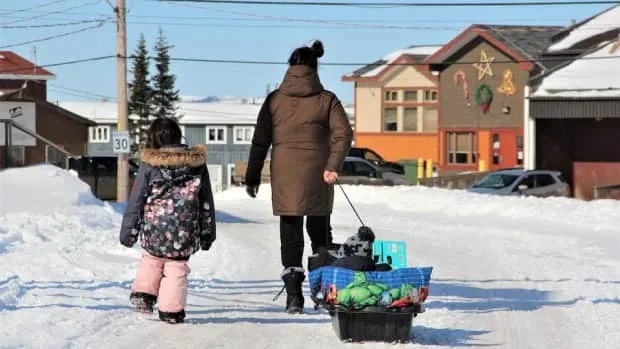
Delphine Jung/Radio-Canada
'They're wasting their time'
Shane Vollant, who is both Innu and Naskapi, is one of many people who own a small cabin near Lake Joyce.
"I spent most of my youth in that cabin. We've been hunting Canada geese every spring there for generations," he said. "The mine would be right in front of our cabin."
A potentially obstructed view of the lake isn't his biggest concern, however.
He's also worried a new mine could affect the water quality in the region.
"I don't want a mine even if we're promised work. We are the only Naskapis in the world and we only have one territory, we can't let it go," he said.
Theresa Chemaganish, the grand chief of the Naskapi Nation of Kawawachikamach, says she shares some of the concerns from her community.
"Since the beginning, we have said that the population's opinion was important. And it's because of this opposition that the council wants to be very transparent," she said.

Facebook/Shane Vollant
Réal Mckenzie, the chief of Matimekush-Lac John, which is about 10 kilometres away from Kawawachikamach, says Century Global might as well drop the project.
He won't budge on the issue.
"There's not going to be a mine there, is that clear? That lake is sacred!" he told Radio-Canada.
"They should stop giving permits to mining companies, it's pointless… They're wasting their time because for us, it will be a no."
The council for the Naskapi Nation appears to be keeping more of an open mind. It says it wants to study the project's potential effects on its territory and traditions.
By law, the communities must hold public consultations.
"We respect the position of the Innu and they respect ours. We just have a different approach. We will follow the process," Chemaganish said.
After meeting with Century Global last november, the Naskapi Nation met with about 60 of its residents.
Century Global told Radio-Canada it wants to continue consulting with different Indigenous communities to "identify their concerns and come up with mitigation measures."
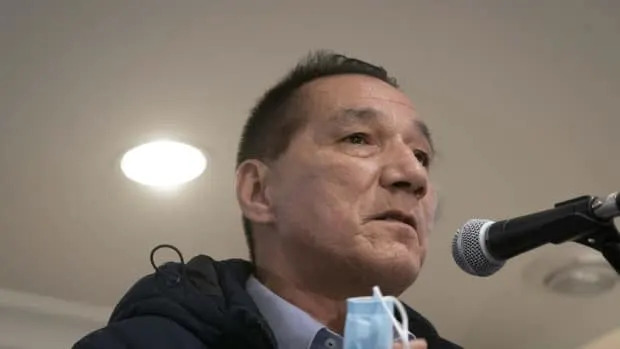
Ivanoh Demers/Radio-Canada
Environmental impact
According to Century Global, the project — if approved — would last about 10 years, including two years of construction and seven years of production.
On the federal government's website, the only external opinion about the project comes from a group of students from the University of Waterloo.
The students wrote that the project should be categorically refused because of "its biophysical consequences and socio-economic impacts."
Century Global has questioned the students' methodology.
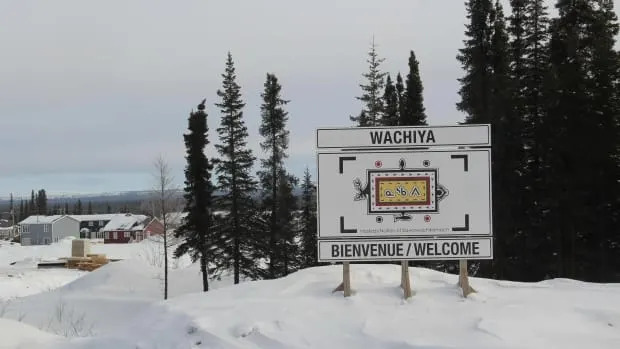
Delphine Jung/Radio-Canada
Émile Cloutier-Brassard, a mining analyst with the Montreal-based non-profit organization Eau Secours, agrees. He says the study had some shortcomings in terms of accuracy and scientific method.
But he does support the students' position that the mining operation would drain the lake, which would affect the environment.
Century Global says draining the lake "is necessary to ensure the safety of workers in the open pit mine."
The mining company promises to refill the lake during the last two years of production.
Allan Gan, who is managing the project for Century Global, says this process will make Lake Joyce deeper, larger and a healthier living environment for fish.
"I have my doubts about the fact that a mining company can bring improvements to a territory or its environment," Cloutier-Brassard said. "That seems counterintuitive to me."
Debate about this project is unlikely to end anytime soon.
Last July, the Impact Assessment Agency of Canada gave Century Global a three-year extension to provide the studies needed for the project to be formally reviewed and, possibly, approved.
NB
Atlantic puffin returns to open water after 'miracle' rescue
Wed, March 8, 2023
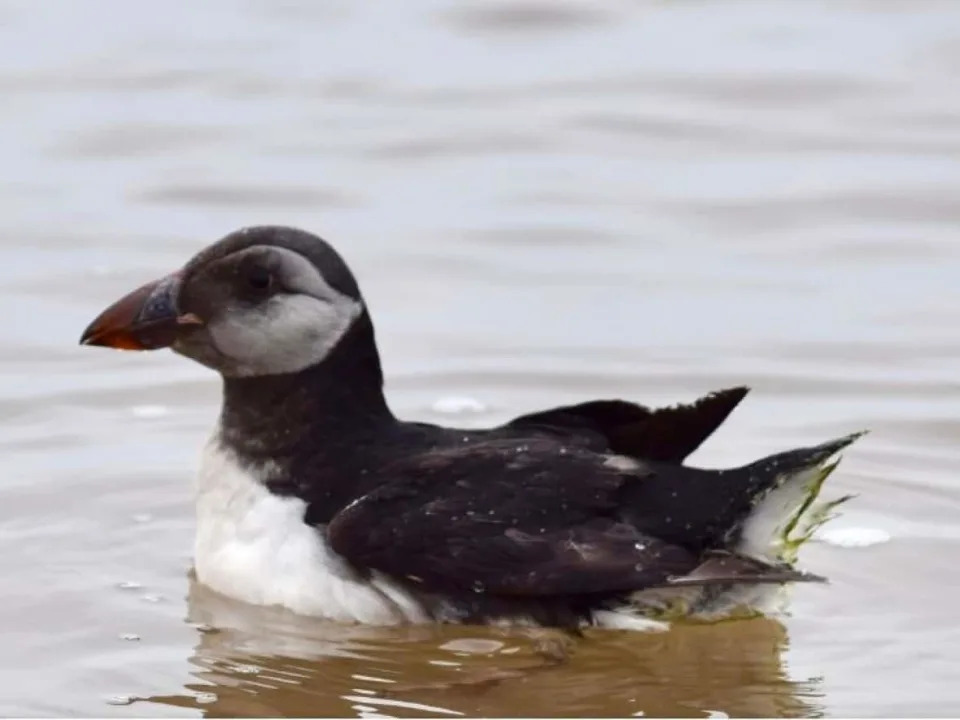
This young Atlantic puffin was released into the water off the New Brunswick coast just days after it was found in the middle of a busy road in Riverview. (Atlantic Wildlife Institute/Facebook - image credit)
The tiny Atlantic puffin rescued from a busy four-lane road in southeastern New Brunswick last Thursday has already been released into open water after a short recovery at the Atlantic Wildlife Institute.
Pam Novak of the Atlantic Wildlife Institute said that when the email came in about a tiny bird in Riverview that had clearly lost its way, she thought it was a typo, and the sender meant pigeon — not puffin.
"Luckily, it was found as quickly as it was," she said. "For the gentleman who found him to find him so quickly before it actually got hit by a car is what the miracle of this is — that that bird didn't get injured."
Weighing in at just 400 grams, Novak and her team did some research and concluded the Atlantic puffin was likely a juvenile, going into its second year. It's plumage is dull, and the bill itself didn't have the iconic orange and yellow colours yet.
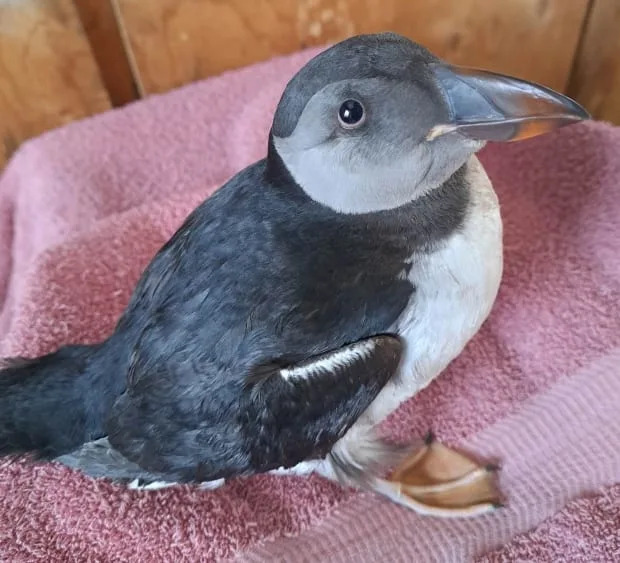
Submitted by Pam Novak
After an exam, a few days of rest, and a bathtub swimming test, Novak knew the puffin was ready to be released into open water.
"We have a little pool set up to make sure that we can see that activity happening and he passed that test," she said. "Then it was a matter of getting him back out."
When it came time for the release, the bird "was very happy to go," she said as she laughed. "No looking back."
The wildlife care team determined the bird was most likely on its way to Grand Manan or nearby Machias Seal Island, and drove the Atlantic puffin down the Bay of Fundy coast to find open water and a direct route to the breeding grounds.
"The consensus was that it's probably trying to get down to Machias Seal Island, so that's where we put it … and shortened his or her trek to get right to the island."
LISTEN | Pam Novak tells Information Morning Moncton about how a rescued puffin has been returned to the wild:
Novak suspects the lonely puffin may had become disoriented by fog that moved in that morning. It was also a "pretty breezy, snowy kind of day."
While there is no way to know whether the bird will survive, Novak is hopeful.
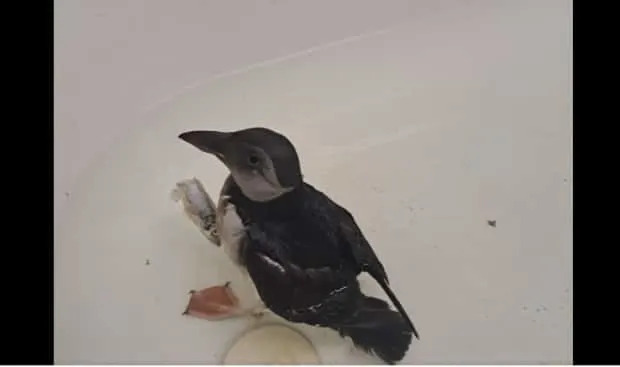
Atlantic Wildlife Institute/Facebook
"A lot of times you're not going to know what's going to happen. All we can do is put a bird out that we felt was in good healthy condition, didn't show any kind of ailments, just got itself put off track for whatever reason and just give them that second chance."
The last time Novak saw the bird, it was in deep open water — a quiet place she describes as the best spot it could be.
"Last we saw it was diving underwater and it took off and that was that," she said. "So that's all we can ask for."
BAY OF FUNDY
Walton marina to assist BigMoon Power's tidal energy project in Minas Basin
Wed, March 8, 2023

BigMoon Power will soon be deploying this tidal power device named the Falcon in the Minas Basin in the Bay of Fundy. The company calls the floating water wheel the Kinetic Keel. (BigMoon Power/Instagram - image credit)
Many have tried and many have failed, but now BigMoon Power is getting close to launching its attempt to harness the power of the world's highest tides and a new marina development in Hants County will be playing a key role.
BigMoon will soon be filling its anchors — modified rail cars — with cement in Walton, N.S. They will then be transported across the Minas Basin to tidal power site near Parrsboro.
"We are starting to move closer toward the implementation of a tidal device in the Minas Passage," said Jamie MacNeil, BigMoon's executive vice-president. "The first phase that we will be embarking on are the gravity bases that will hold our device in place."
Unlike other failed tidal power projects that put turbines on the ocean floor, BigMoon's power generator floats on the surface of the water and a kinetic wheel spins with the current.
Unsuccessful projects launched in Nova Scotia since 1985 have ended in fish kills or equipment failures, among other problems.

Paul Palmeter/CBC
BigMoon's main equipment is called the Falcon and is currently sitting in Saint John, N.B. It will be transported over the next few weeks and attached to the anchor base.
The bases could be moved from Walton between March 21 and 24 when the tides are at their highest this month. But permits are still needed to do the required work below the high tide mark in Walton.
"We want to get this moving as quick as possible so we can move on to the next phase where we can start providing green energy to the people of Nova Scotia from the Bay of Fundy," said MacNeil.
BigMoon Power has done extensive testing of their product in Scots Bay, located in Kings County on the other side of the Minas Passage from Parrsboro.
The company has had a lengthy relationship with marine conservationist Darren Porter, who lives in Hants County. Porter purchased an unused parcel of land next to the harbour in Walton last month. It didn't take long for him and BigMoon to agree to use the site to their advantage.
"The first thing was purchasing it and then secondly was putting money into it for infrastructure to get access down to the water so we put in a roadway," said Porter.
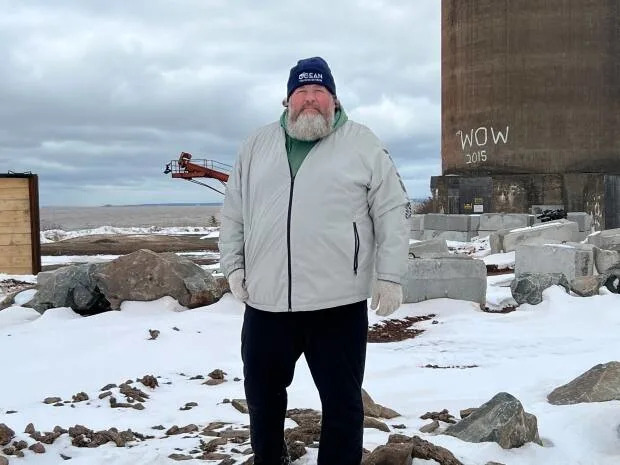
Paul Palmeter/CBC
While BigMoon will have an active stake in Porter's new location, Porter has many other potential ideas for development.
Two weeks ago Fisheries and Oceans Canada (DFO) announced weir fishing can resume in the area and Porter plans to set up his fishing weir next to the property.
A working waterfront
"The possibilities here are endless and we want to rebuild the wharf, of course," said Porter.
The old wharf in Walton was destroyed by fire in 2012 and two Hants County men were charged with arson.
Walton was a busy port decades ago with a nearby barite mine loading ships from Porter's new property during its operations from 1941 to 1978.
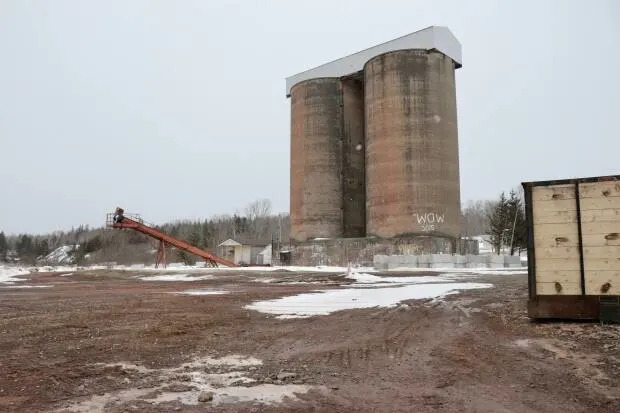
Paul Palmeter/CBC
Two 60-meter-high silos still stand side by side at the site and continue to hold barite. A structure sits on top of the silos that has a commanding view of the Minas Basin and Cape Blomidon, one of the most notable landmarks in Nova Scotia.
"At first my plan was to take them down but I'm finding out most of the locals here are quite attached to them," said Porter.
Porter still has lots of discussions he needs to have with the Nova Scotia government and the Municipality of East Hants to get permits and deal with zoning issues.
Porter says local fire departments can use the new service road already in place to launch rescue boats. He is hoping to see his property become a spot for people to enjoy striped bass fishing, a popular pastime in the area.
Porter says nothing is off the table and he is open to listening to anyone who may have a plan for the working waterfront he envisions.
Salvage operation
As part of BigMoon's a marine renewable-electricity licence, is must lift one of the earlier turbines that failed so miserably. A 1,300-tonne machine has been stranded in the Minas Passage since 2018 when a parent company of Cape Sharp Tidal Venture, OpenHydro Group Ltd., filed for liquidation.
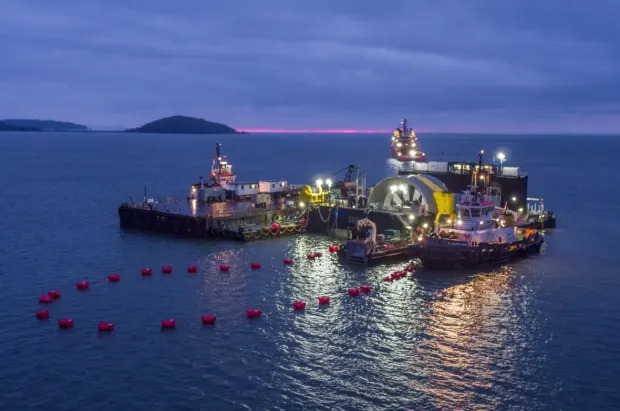
Cape Sharp Tidal
BigMoon has to have it moved by the end of 2024 but they plan to move it to Walton this spring or summer, where it would be dismantled.
"We would like, and I think everyone in Nova Scotia would like, for us to remove that turbine much sooner rather than later," said MacNeil.
The race to become the first company to successfully build a machine that can harness the Bay of Fundy's powerful tides, an endless natural resource, has been very competitive.
While BigMoon Power is ready to take the next plunge, no one is claiming any victories just yet. They still have lots of hurdles to overcome and extensive testing before they can reliably provide power to Nova Scotia's electrical grid but they hope it will be months, not years, for that to happen.
Exclusive-Canada will not force Chinese state investors to divest stakes in Teck, First Quantum
Divya Rajagopal
Wed, March 8, 2023
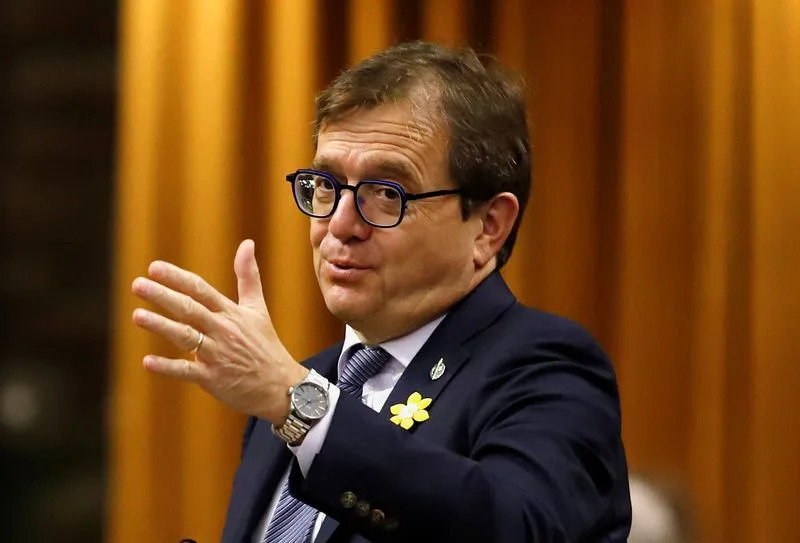


Visitors to the Ivanhoe Mines booth speak with a company representative during the PDAC convention in Toronto
By Divya Rajagopal
TORONTO (Reuters) -Canada will not force Chinese state-investors in three of its large mining companies to divest stakes, as such a move would create policy uncertainty, the natural resources minister told Reuters.
In November, Canada had asked three Chinese companies to sell their stakes in Toronto-listed lithium explorers following a national security review, drawing criticism from the mining industry and raising questions about the future of other Chinese investments in the Canadian mining sector.
"If you start looking backwards at investments, it will create all kinds of uncertainty about whether an investment is ever really an investment," Natural Resources Minister Jonathan Wilkinson said in an interview late on Tuesday on the sidelines of Prospectors and Developers Association of Canada (PDAC) conference in Toronto.
Three of Canada's largest mining companies - Teck Resources, Ivanhoe Mines Limited and First Quantum Minerals Limited, - count Chinese state-owned enterprises as their biggest single shareholder.
This is the first time Canadian government officials have clarified what the future holds for other Chinese investments in the three Canadian mining companies.
According to Refinitiv data, the sovereign wealth fund China Investment Corp owns a 10.3% stake in Teck, China's state-owned CITIC Metal Group owns 26% in Ivanhoe Mines while China's largest copper producer Jiangxi Copper Corp Ltd owns 18.3% in First Quantum Minerals.
Shares in First Quantum were up 3.6% on Wednesday, also helped by news that Panama's government and the miner had agreed on the final text for a contract to operate a key copper mine. Ivanhoe gained 2%, while Teck climbed 1.3%.
Canada's move late last year had worried smaller mining companies in the country who are looking to raise funds for exploration of critical metals.
Wilkinson added that Canada remains concerned over Chinese state-owned enterprises having "control" of Canadian mining companies through mechanisms such as long-term off take agreements, where buyers secure exclusive long-term supply of metals at certain price.
Canada and its allies are looking to decouple from China in an attempt to diversify their supply chain in battery metals.
In spring this year, Canada will introduce a revamped Investment Canada Act that will reject or impose conditions on foreign investments that the government considers a threat to its national security.
But Wilkinson clarified that Canada will continue to trade with China. "Of course Canada will continue to have trade with China, some of that may involve trade in critical minerals."
Ottawa's forced sale of Chinese investments in Canadian mining companies has further irked Beijing and added to the widening rift between the two countries. Diplomatic tensions between Canada and China have been running high since the detention of Huawei Technologies executive Meng Wanzhou in 2018 and Beijing's subsequent arrest of two Canadians on spying charges.
Last year, Canada released a new Indo-Pacific strategy to challenge China on human rights issues, and described China as an "increasingly disruptive, global power."
(Reporting by Divya RajagopalEditing by Denny Thomas, Nick Zieminski and Chizu Nomiyama)
BC
7 years into crisis, politicians still struggle to see drug users as people, Dr. Bonnie Henry says
Wed, March 8, 2023
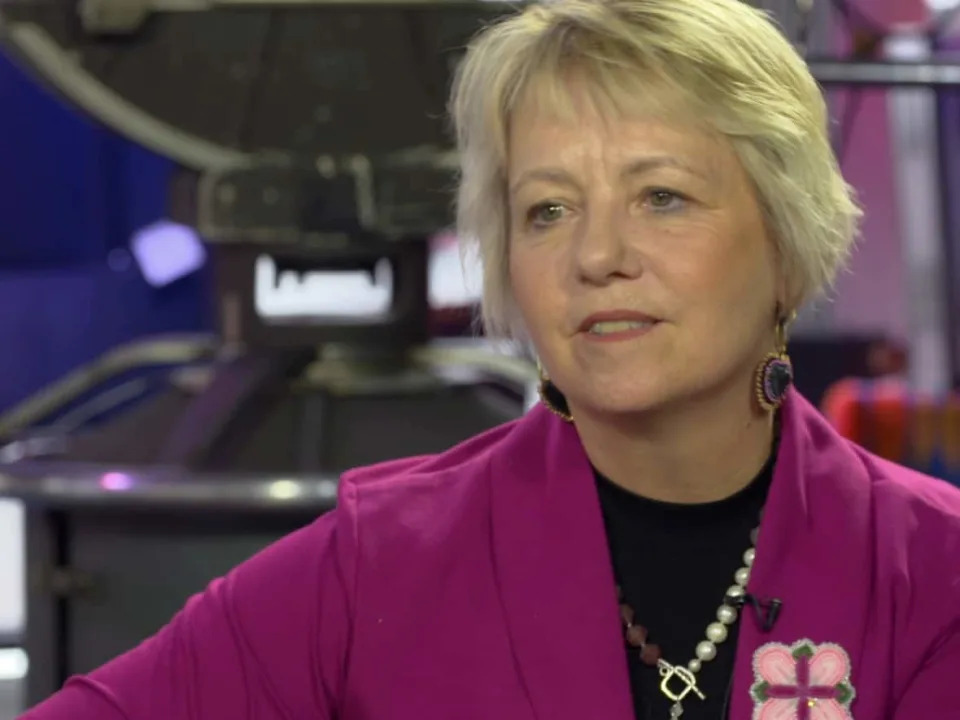
B.C. Provincial Health Officer Dr. Bonnie Henry spoke to CBC News in a wide-ranging interview marking three years of the COVID-19 pandemic. (CBC News - image credit)
As nearly seven people continue to die each day from B.C.'s poisoned drug supply, Provincial Health Officer Dr. Bonnie Henry says politicians are still grappling with the concept that drug users deserve to be treated like people.
In a wide-ranging interview with CBC News, Henry described the toxic drug crisis as "the most challenging issue that I've ever dealt with in public health."
One of the biggest issues when it comes to public policy, she said, is getting elected officials to shift their thinking after a century of prohibition and criminalization of drug users.
"It has been really difficult for politicians to wrap their heads around," Henry said. "These are people."
In the almost seven years since a public health emergency was declared in B.C. over illicit drug deaths, the provincial health officer says minds are beginning to change about how to approach the problem, but "slowly, too slowly."
"We're recognizing that people who use drugs are people first," she said. "They're our friends, our family, they're our colleagues, they're our neighbours."
Her words echo those of Chief Coroner Lisa Lapointe, who has said it's been a struggle to move public policy away from an ideology that suggests the only way to help drug users is to "harm them as much as we can."
Vince Tao, a community organizer for the Vancouver Area Network of Drugs Users (VANDU), said it's not just politicians who have trouble seeing drug users as human; it's also academics, researchers, police and the media.
"She's not wrong, but I would say, with all due respect, that's her job, right?" he said of Henry's comments. "Her job is to make sure that her colleagues, her cohort, understands the severity of the crisis at hand."
Tao believes real change requires more than just viewing drug users as human. He said it also requires allowing them and other marginalized people to have power and a voice in how decisions are made.
'Things got dramatically worse' during pandemic
Henry spoke with CBC News to mark three years of the COVID-19 pandemic, another public health emergency that has led to an ever-increasing number of deaths from toxic drugs.
On Tuesday, Lapointe's office released the latest numbers on the drug crisis, revealing that 211 people were killed by illicit drugs in January. The death rate that month was 47 people per 100,000, more than double what it was in April 2016, when the public health emergency was declared.
Henry said it was distressing to watch as more people began using alone because of public health restrictions related to the pandemic. Other measures also caused the illicit drug supply to become increasingly dangerous.
"Because of international trade being interrupted and people making large batches on their own at home, there's no quality assurance to any of it, so things got dramatically worse," Henry said.
That includes a major spike in the deaths among men aged 30 to 59, many of whom had jobs and were using at home, without the knowledge of their families.
Watch | Provincial health officer addresses toxic drug crisis
But Henry said the pandemic also created some opportunities. Public health officials had to work closely with elected officials on how to deal with COVID-19, which resulted in more trust and openness to new ideas.
As an example, she pointed to a three-year pilot project decriminalizing personal possession of very small amounts of some drugs in B.C.
When Henry released a report in 2019 calling for similar measures, "it was dismissed by government," she said.
"Having built that relationship of trust through the pandemic enabled us to have a conversation and to go back and say, look, read this again, let's think about this," she said.
That the province went on to apply for an exemption from federal drug laws, and that some version of decriminalization was approved is "a massive step forward" in Henry's mind.
"They call it a pilot program. I cannot see us going back from this," she said. "What we need to do is ensure that it is implemented, that we take the criminal justice system out of people's lives."
She said she's spoken to mothers who are afraid to ask for help with addiction because they're scared of being labelled as criminals and losing their children. Henry hopes decriminalization will take away some of those fears.
But B.C. still has a long way to go in terms of policies to stop the flood of drug deaths, she added.
That includes expanding access to prescribed safer supply, which is still reaching only a small percentage of drug users and is not available in many communities.
It also includes reforming the treatment and recovery system, which is not subject to provincial regulation ensuring facilities are using evidence-based methods and employing qualified staff.
"We have no system," Henry said. "There's never been a system to understand who's in there, how well they do, how often people relapse."
In the end, though, the drug crisis isn't just about drugs in Henry's mind. It's about overlapping, systemic issues including B.C.'s fragmented mental health-care system, homelessness and incomes that don't cover the cost of living in this province.
"It is more than just one thing," she said.
BC
On International Women’s Day, Maamiqsu are guiding the path to the revival of sacred ways
Wed, March 8, 2023
By Alexandra Mehl
For Marjorie White of Huu-ay-aht, she was given her traditional name, Nanaahimyis, at a potlatch she hosted for her family in 2010. This Tseshaht name had been passed down in her family maternally for generations and given to the eldest daughter.
At the 2010 potlatch, White’s brother said that it was time for her to take the traditional name, Nanaahimyis, that had belonged to her great-grandmother of Tseshaht.
“To carry that name is an honor and I carry it with pride,” said White. “I carry it with dignity because of where it comes from.”
At the very same potlatch, roughly 80 family members were named.
“I had called my siblings together and told them that we had to name all of our children, that some of them still had their younger names and that they had to change their names,” said White.
“My grandmother always told me that when I got married and had children that I had to make sure that I did the right thing,” she added. “She emphasized the importance of making sure that my girls had their Indian name.”
The first potlatch White hosted was in the ‘60s when she named her daughters. Later she hosted one to name her grandchildren, and most recently the aforementioned family potlatch in 2010.
“Living away from home and not knowing your family and relatives, [it] was really important for me to make sure that my daughters [and] my grandchildren knew where they come from and who they are,” said White.
Strengthening inter-tribal bonds
“Culturally speaking, the matriarch was essentially in charge of nurturing and strengthening the family bonds; … connecting to ceremony, connecting to home, the environment,” said Wishkey, a story-teller from Huu-ay-aht. “[The matriarch has] always been that reminder of where we come from, teaching where she comes from, where her mother comes from, kind of making those inter-tribal relations and strengthening those bonds.”
Wishkey said that within Huu-ay-aht, and by extension Nuu-chah-nulth culture, there are a number of different important roles and responsibilities, the most prominent being the Tyee, and the Maamiqsu, referred to as eldest daughter and matriarch.
“[They taught] their ability to give us some knowledge about life skills and our responsibilities looking after family, looking after our homes, looking after all that is around us and they always made sure that there is safety and guidance,” said White.
White explains that at a young age the matriarchs begin to teach and share what their responsibility is to their children. Her mother and grandmother taught White respect, kindness, and to be a role model when she was young.
White has gone to hold many achievements, including participating as one of the founders of the first friendship centers in the province, being the first Indigenous person to be citizenship Court Judge and the first Aboriginal person to be appointed to the Vancouver Police Commission.
Most recently she received the 2022 Lifetime Achievement Award from Indspire, which honours Indigenous people across Canada who are inspiring progress in their communities.
Since the 2010 potlatch, more children have been born into White’s family. She intends to discuss with her siblings the naming of those children as soon as possible.
“To me it was a responsibility that I took to show… how I value my culture, even though I have been away from home for so long,” said White.
The natural strengths of women
Nora Martin, Chamaatookwis, of Tla-o-qui-aht explains that each family has different teachings, and the women had different lessons, though there are many commonalities within the nations and tribes.
Martin remembers when she would visit her grandmother in Hesquiaht or Opitsaht when she was young, the girls would stay with the grandmother and the aunties while the boys would go out with the uncles.
“My aunts would stay home with us and our grandmothers and then they would teach us things,” explains Martin, “cooking and harvesting and different teachings about raising a family or being a member of the community.”
Martin and her siblings were brought up with different roles.
“My brothers are carvers, my sister’s a regalia maker, and I took care of the monetary part of it,” she said. “We all had different roles depending on what they decided you were going to be.”
For Martin, what she learned from her father and family is now being passed on to the next generation. Martin is teaching her niece the responsibilities that she had held with family finances.
“The matriarch is a very important role because essentially it harnesses the natural strengths of women, which is the nurturing and caring and compassionate side of our people,” said Wishkey.
Wishkey explains that matriarchs traditionally assumed the roles such as midwife, medicine woman, caretaker, and healer. Modern medicine has displaced some of these traditional roles, he explains, especially with childbirth.
“One of the main roles of a matriarch is to really take care of everyone, and especially for the women, and childbirth,” said Wishkey.
Historically, Maamiqsu, would hold a planting ceremony, he explained. The placenta would get planted along with a tree or berry bush that would grow from the ground, which would connect that child to the earth. This is a way that Wishkey believes that traditional practices can be brought into modern day childbirth.
Martin adds that they would bury items with the afterbirth that would follow suit with the child's foreseen roles and occupations.
“There's still a number of traditions that we can do, no matter where we are in the world, that can connect our children to Mother Nature,” explained Wishkey.
Mother Nature, said Wishkey, is the original giver of life. Ceremonies involving childbirth are often situated in connecting the new child and family to mother nature, he continued.
The cycle of life with teachings
White said that though some practices are carried on, with the adaptation to modern shifts in society and the loss of Nuu-chah-nulth language, it has become more difficult to connect to those practices. Some difficulties are due to the busyness of education, technology, and social media, and there not being the same amount of time to pass on knowledge.
“All of the things that I mentioned were passed on to us in our language, and it was easier for our parents [and] our grandparents in those days to sit down and talk to us about life,” said White. “I think that's been a real… disadvantage for us, but I'm hoping that with the revival of our potlatch system and revival of our language that this will again be more accessible.”
White explains that she hopes one day to see teachings passed down to youth as they were before: speaking in Nuu-chah-nulth and returning to home territory to learn culture and traditions.
Wishkey said that he honors the women and matriarchs in his life by respecting their teachings.
“We kind of had one unwritten rule in Nuu-chah-nulth, which would be ḥaaḥuupst̓ał, which is the cycle of life with teachings, and it implies that everything learned is meant to be taught,” said Wishkey.
“That was a really important role… of matriarchs, is teaching not only fundamentals, but also where you come from and taking care of yourself and nurturing and health,” continued Wishkey. “There's a lot of things that women and mothers naturally do, but it’s a very sacred role in the culture of Nuu-chah-nulth.”
“I believe that our traditions, and our culture is so strong that it helps to ground us in our lives,” said White. “Bad habits have been developed over the years, and it is because we haven't had that same kind of teaching that we had years ago.”
-30-
Alexandra Mehl, Local Journalism Initiative Reporter, Ha-Shilth-Sa
Around 75 food service workers receive layoff notices at UNB, union says
Wed, March 8, 2023
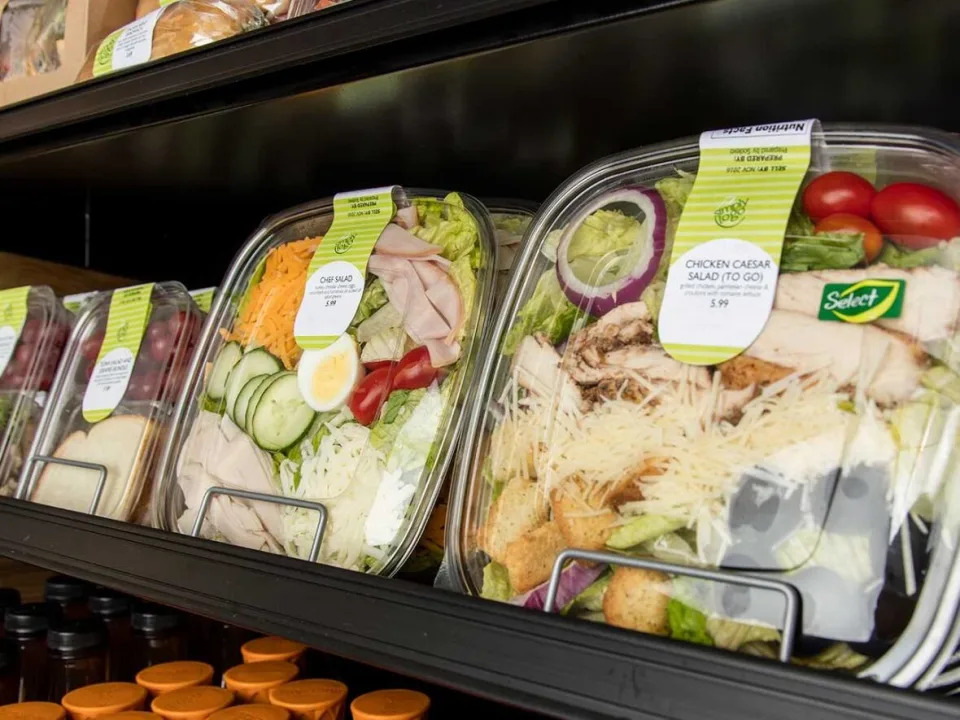
Around 75 CUPE Local 2266 members received layoff notices effective at the end of May, according to CUPE representative Adrienne Paradis. (Sodexo My Way website - image credit)
Around 75 food service workers at the University of New Brunswick in Fredericton have been issued layoff notices, according to the union, which wants the administration and a new employer to ensure jobs are protected.
Adrienne Paradis, a national CUPE representative based in the regional office for the Maritimes, said the union found out in November that UNB put out a request for proposals for the management and operation of food services on the Saint John and Fredericton campuses.
She said something didn't look right: the request for proposals didn't include anything that would ensure the next provider would employ the current food service workers and keep their union benefits.
"I assumed it was a mistake," said Paradis.
The workers are members of CUPE Local 2266.
Paradis said she understood from food service workers and former CUPE representives these requests had a requirement to protect the workers during contract negotiations. UNB did not respond when asked to confirm this by CBC News.

University of New Brunswick
The contract between Sodexo Canada, the current food provider at UNB Fredericton, and the university will end May 31. That's when the layoffs will go into effect, said Paradis, if the employees are not rehired by the new provider.
In response to a request for an interview, Sodexo said it does not comment on ongoing contracts with clients.
Paradis said staff have never received layoff notices in the past during contract changes, and when food service providers changed it was a "seamless transition." This is why, she said, some workers have been working with the university food services for 40 years or more.
Paradis said the employees still haven't been told if they will be taken on by the new company.
Negotiations underway with new company, UNB says
UNB did not agree to an interview with CBC News, but in an emailed statement, Heather Campbell, associate director of communications, said the university is currently negotiating with a company to take over food services.
"We recognize that transitions of any kind can cause feelings of uncertainty," said Campbell. "As we negotiate with the selected provider, we acknowledge that the employees of all external parties are the top priority for everyone."
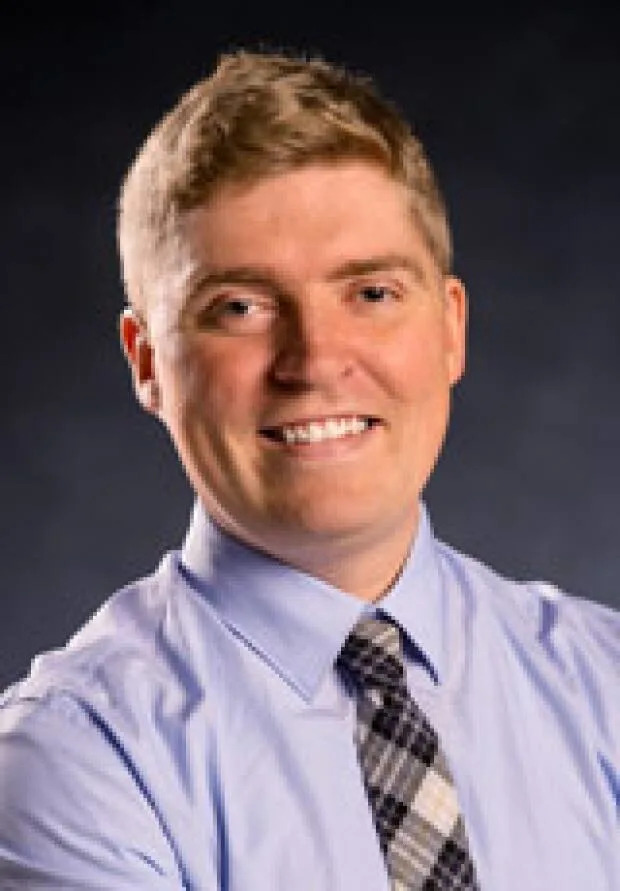
University of New Brunswick
Simon Ouellette, a communications representative with CUPE, said the union sent an email to UNB president Paul Mazerolle requesting a meeting to discuss the situation on Dec. 6, before any layoff notices had been issued.
"We sent the request back in December to meet to say, like, 'Can we work this out? Can we can we make a deal? You know, can you fix this new contract ... Can you make sure that when Compass Chartwells hires people, that they prioritize and they rehire the folks that were there before?''' said Ouellette.
Chartwells, a division of Compass Group Canada, is a food service provider based in Ontario. CBC News asked UNB if Chartwells was the selected food provider for the university but did not receive a response.
Chartwells is the current provider at UNB Saint John.
Faculty and staff ask university to intervene
The situation also garnered attention from staff and students as word spread across campus.
Matthew Sears, a professor of ancient history at UNB Fredericton, wrote a letter to school administration that said how "deeply disturbed" he was by the university's treatment of the food service workers.
The letter calls on the university to "intervene in this process in the interest of our friends and colleagues who work in food service at UNB." It said food service workers have been kept in the dark about contract negotiations with nothing in place to protect their jobs, wages and working conditions.
Sears said more 150 faculty and staff have since put their support behind the letter.
He said the situation sets a bad precedent in a unionized work environment.

Submitted by Sofia Erickson
"We have an opportunity here, I think, to treat our colleagues better," said Sears. "And at the very least, part of the negotiation should be that the new food supplier has to continue on with the CUPE unionized contract and to keep the current workers on as part of its deal to get the contract."
Sears said the university contacted him after he sent the letter. He met with Kathy Wilson, vice-president academic at UNB, on Tuesday morning.
Wilson explained that because the food service workers are not employees of UNB, he said, there is nothing the university can do to ensure their employment through the contract change.
He said Wilson told him that the university is trying to finish contract negotiations as quickly as possible so the workers could possibly get issued new contracts from the selected provider.
Sears said talking with Wilson made it clear there are some inherent problems with outsourcing providers.
"The people who work for those private contractors can kind of be, you know, put to the side just for procedural reasons, and that doesn't sit well with me, nor does the fact that they certainly haven't been given any updates or communication at all from the university," he said.
'They're family to us'
Sofia Erickson, a third-year UNB student, also wanted to take action when they heard from a friend about the layoffs around a week ago. They immediately went online and started circulating a petition.
Days later that petition has almost 430 signatures. Erickson said that support speaks volumes about how upset the community is.
They hope the petition will show administration that the food service workers on campus are integral members of the community. Erickson said many students see the food service workers on campus every day and know at least one by name.
"These workers who have, you know, spent big portions of their lives at UNB with the students in our community — they're family to us," said Erickson.
B.C.'s proposed pay transparency legislation lacks real power to create pay equity, advocates say
Tue, March 7, 2023

B.C. Human Rights Commissioner Kasari Govender notes the gender pay gap in the province stood at 17 per cent in 2022, one of the highest in Canada. (Monkey Business Images/Shutterstock - image credit)
The British Columbia government tabled a bill on pay transparency Tuesday which advocates say lacks power to make a difference for women in the workplace.
According to the province, the legislation is the first phase toward pay equity, and once passed will require employers to include wage or salary ranges on all publicly advertised jobs, and forbid employers to ask job seekers about their pay history or punish employees who disclose their pay to co-workers or job applicants.
B.C. employers will also gradually be required to publicly post reports on their gender pay gap once the legislation passes.
But while greater transparency is welcome, it will not make a significant difference on pay equity in the province, says B.C.'s human rights commissioner.
The regulation covers the B.C. Public Service Agency and Crown corporations with more than 1,000 workers — such as ICBC, B.C. Hydro, WorkSafeBC, B.C. Housing and the B.C. Lottery Corporation — by Nov. 1 this year.
The rest of employers with more than 1,000 workers will be included by the same time next year, followed by employers with more than 300 employees on Nov. 1, 2025, and employers with a staff of 50 or more in November 2026.
By June 1 of each year, B.C.'s Ministry of Finance will publish an annual report on gender pay in the province.
Kelli Paddon, B.C.'s parliamentary secretary for gender equity, said the province is committed to introducing pay equity legislation.
"Today is about drawing a line in the sand," Paddon said Tuesday. "Pay discrimination will not be tolerated in British Columbia."
B.C. still 'decades behind other provinces'
In a statement, B.C. Human Rights Commissioner Kasari Govender notes that the gender pay gap in the province stood at 17 per cent in 2022, one of the highest in Canada, with women and gender-diverse people in B.C. earning less than cisgender men for comparable work.
The gap is larger for people with disabilities, Indigenous people, and people of colour.
"Pay transparency legislation by itself can provide us with more information about the problem — if it is robust enough — but if it doesn't lay the foundation for complementary pay equity legislation, we will not have the policy tools necessary to correct it," said Govender.
She adds the legislation lacks tools for enforcement such as fines or other penalties. She also cites the absence of a centralized database to assess pay gaps or changes over time.
"I am concerned that this legislation will be seen as a solution to the gender pay gap, when in reality B.C. is still decades behind other provinces," she said.
B.C. is one of four provinces, along with Alberta, Saskatchewan and Newfoundland, that does not have pay transparency or pay equity legislation.
Last week, dozens of B.C. organizations, advocates and academics wrote an open letter to Premier David Eby and key cabinet ministers, calling on them to bring in a pay equity act "that enshrines in law the responsibility of all employers to identify and close gaps in pay for work of equal value."
Humera Jabir, a staff lawyer with signatory West Coast LEAF, said legislated pay transparency leaves the burden on individual employees to advocate for equal pay.
"The difference is accountability," Jabir said on CBC's On the Island.
"Transparency would require employers to report on what the systemic differences are in their organizations with respect to pay. Pay equity legislation includes accountability mechanisms, having to actually shift things, not just report on them."



























